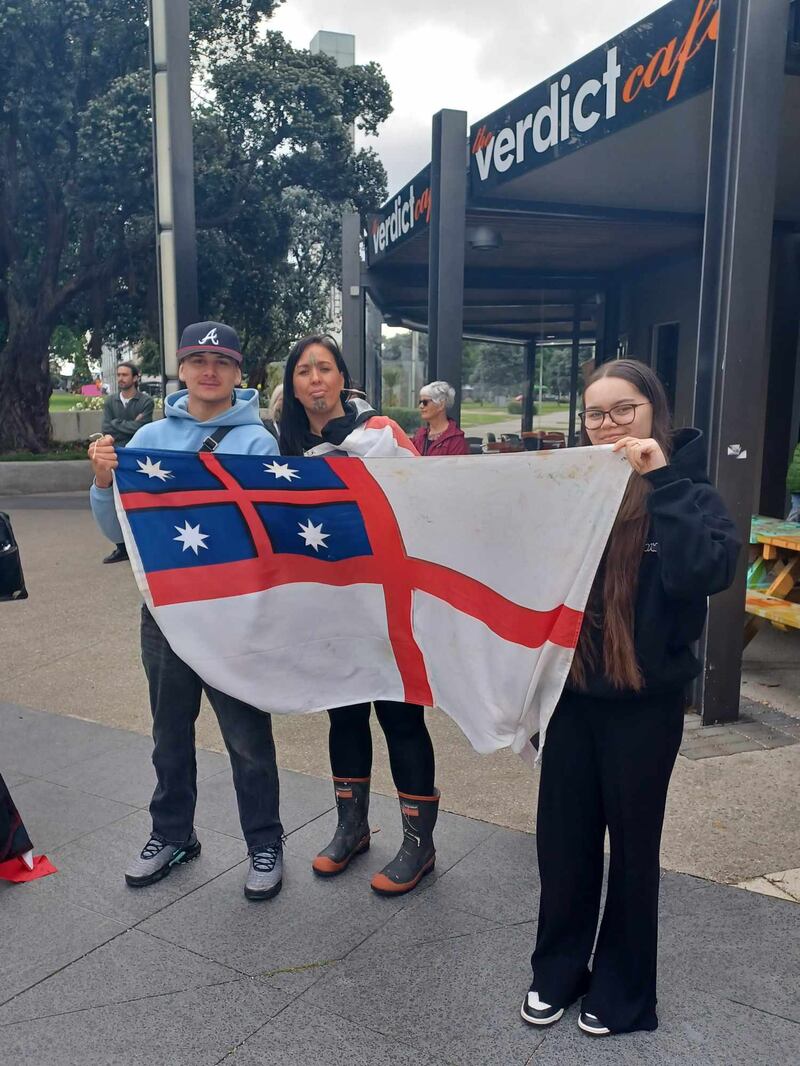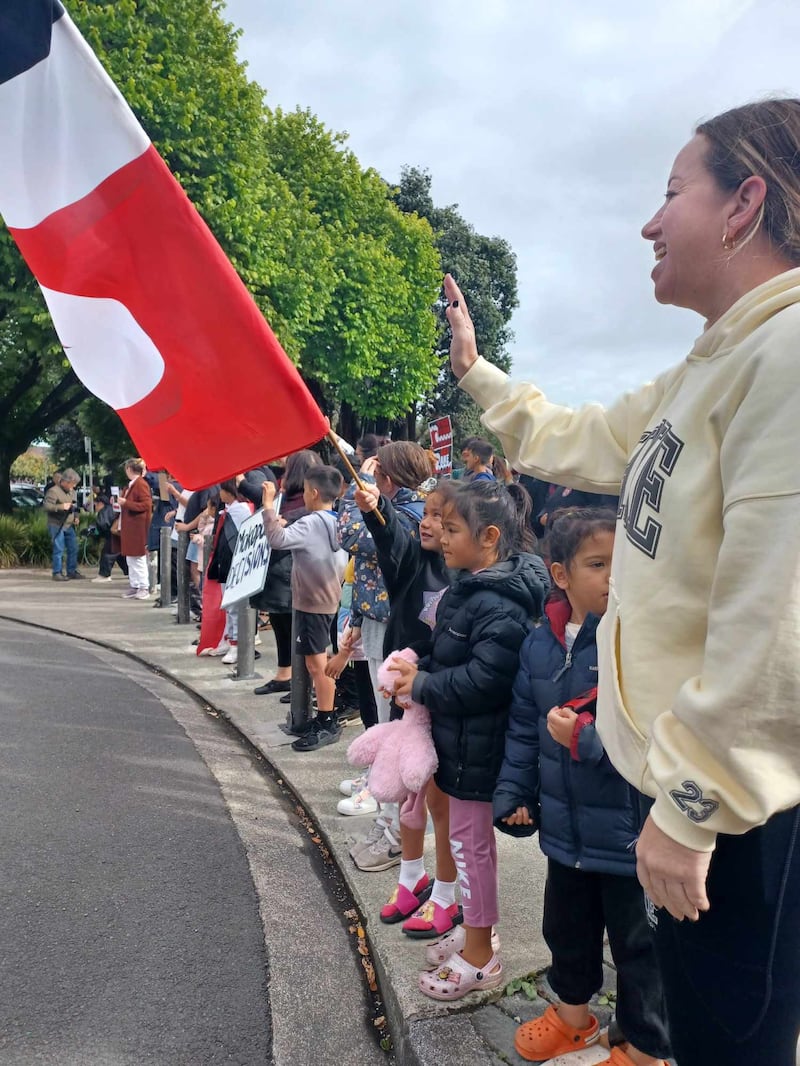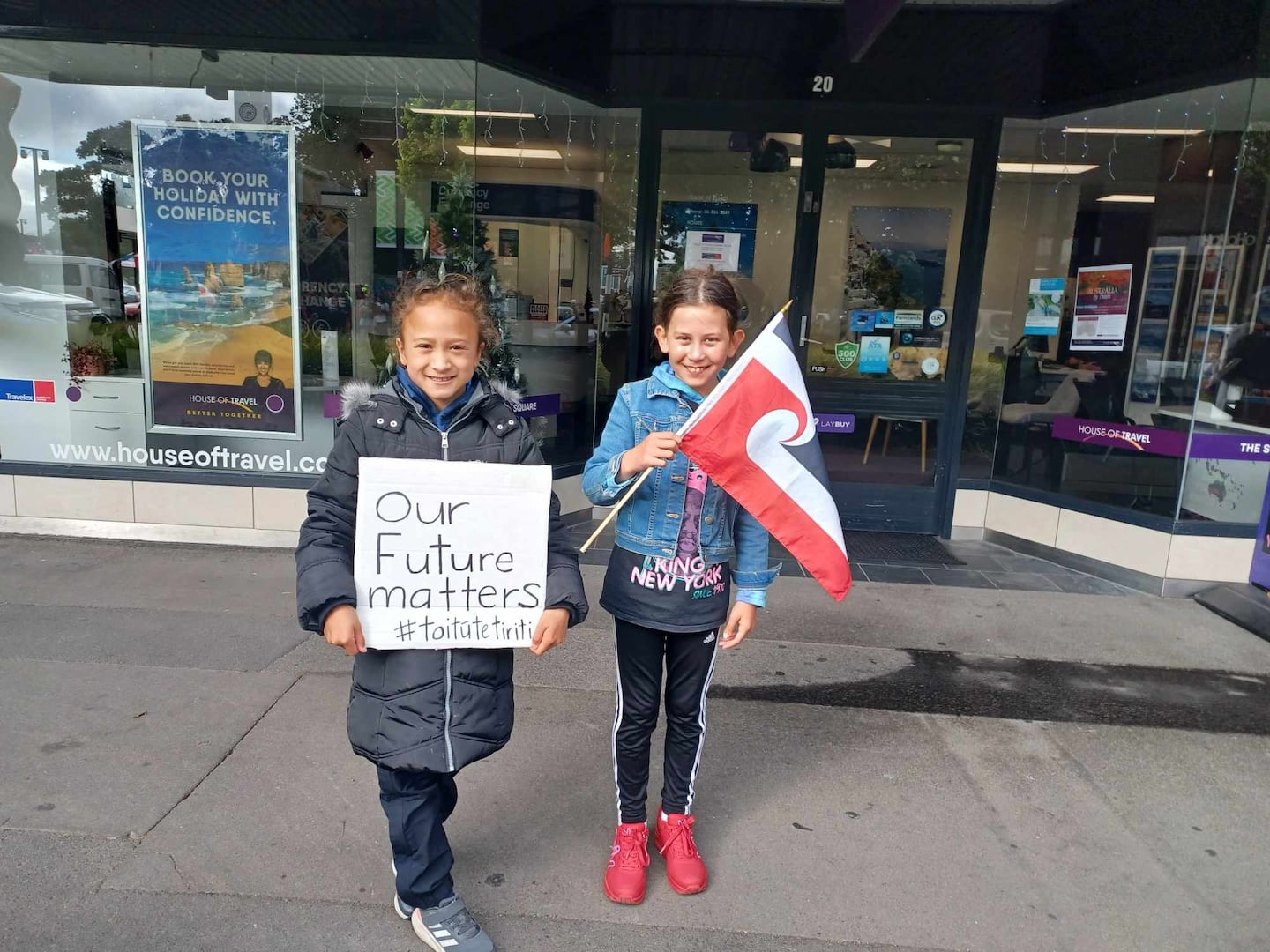Hundreds turned out today at Te Marae o Hine, at the Palmerston North city square, in support of the Toitū Te Tiriti national protest.
The protest started with a huge gathering at Skogland Park, in the city suburb of Roslyn, at 7am. From there a ‘car-koi’ began in which hundreds of cars then drove in a convoy to the city centre causing disruptions to many commuters travelling through the city.
Local Manawatū mana wahine and hunter-gatherer personality Pania Te Paiho says she attended the protest to solidify the rights of her great-grandchildren still to come.
“I’m here so my moko’s moko’s have their rights solidified,” Te Paiho says. “It’s like every generation, they chip away more and more. And we can’t allow that anymore. We must continue to ‘ahi kā’ this fight for them. It’s not for us. It’s before you know it, in another 50 years, all our rights will be gone. All our lands almost are already gone. They almost already took our language, took our culture. And just us fighting to hold on to what should already be ours.”
“Side by side, never under. We don’t want supremacy, we want equality,” Te Paiho says.

For some this was their first experience at a protest. Rangi Ngaruhe of Waikato Tainui is a longtime resident of Palmerston North. Ngaruhe says he has never participated in anything Māori like this before.
“I’m usually the guy that just drives past but, having young kids and a family, if we don’t do something about it now, it’ll still be getting done 20 years later. I thought I’d be brave enough just to come and stand up and it’s good to see whānau here.
“Because if I don’t stand here now and even show up, you know, my son will be exactly this in years to come, so for him to see how it is and what I’m doing here will allow him to be prepared, I guess,” Ngaruhe says.
Moana Tipene Boyd is from Te Whānau a Apanui and was at the protest with her two children who attend Te Kura Kaupapa Māori o Manawatū. Tipene Boyd says she is scared for the future of te reo Māori.
“With our new government coming in it is a bit frightening,” Tipene Boyd says. But we as Māori, we’re resilient people, eh? We’re humble people. So, it’s beautiful to sit with our whānau here this morning. Our tamariki, they need us here today. They need us to be the voice for them. Not only for us, for our mokopuna to come as well.”
“My background is in health, and so hearing these whakaaro that Te Aka Whai Ora is going to be abolished, honestly, it just hurts me. We’ve worked so hard to get to where we are today, and to be going backwards, it’s really going to impact our iwi Māori. For my tamariki to grow up in te ao Māori and te reo Māori, it is such an honour, and sort of knowing what’s going to happen in the future. It’s scary.”

Many local non-Māori attended the protest today including Teresa Ngobi. Ngobi’s mother is Samoan and her father is European. Ngobi is also the mother of 3 half South African and Samoan kids. Ngobi says that race relationships will be seriously impacted throughout the country if things continue as they are.
“I’m here to be able to support the gains that Māori have already made. I believe that while we already know what’s good for Māori is good for everybody, I’m also about making sure that the gains that we’ve already made in terms of te reo, especially in the public service, we’ve still got a long way to go to honour Te Tiriti properly. I believe that what this current government is looking to do, it not only takes us back from what the last Labour government was able to bring in but actually further back. Me and my whanau want to make sure that Māori know that we’re here to support”.
Ngāti Kauwhata elder Barbara Bell says race relations in the country will be set back at least 100 years if this current government continues to undermine Māori.
“Well, it certainly has lopsided up again. ,” Bell says.
“We’ve gone lopsided, we’ve gone backwards, and so the majority are now smiling, and I’m talking about our non-Māori, are now smiling because they can now control how New Zealand runs for them. So, when they say ‘we are one people’, I always say, which one?”
“They’ve taken us back to when I was young,” Bell says.
“It took me right back to my days when we were brought up not to speak the reo, we were brought to sit on the side in our classrooms, we were brought up to just be quiet. We were only allowed to work in the Pākehā world and speak in the Pākehā world and so I became very sad about that. Our mokopuna come first, we have to keep thinking of them and their futures.”

